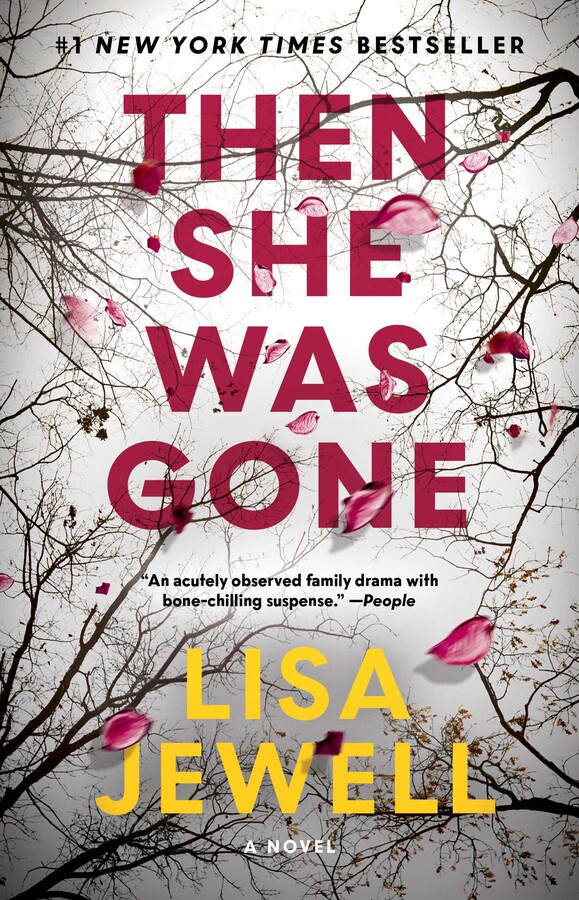
The Family Upstairs
Book Description
A house with dark secrets and a long-buried past is about to awaken. When Libby inherits a grand London home, she discovers it holds the fragmented lives of a family intertwined with tragedy and betrayal. As past and present collide, long-hidden truths emerge, revealing a chilling mystery that links her to the enigmatic family upstairs. With every discovery, the tension escalates, pulsing through the walls of their twisted history. Who can she trust when the line between victim and villain blurs? Will unlocking the past lead to salvation or destruction?
Quick Book Summary
"The Family Upstairs" by Lisa Jewell is a gripping thriller set around a grand but eerie London mansion, recently inherited by Libby Jones on her twenty-fifth birthday. As Libby explores the house’s history, she uncovers the chilling events two decades earlier: the tragic deaths of her biological parents and the disappearance of children. Jewell expertly weaves together three perspectives—Libby, Lucy, and Henry Jr.—to slowly reveal the twisted dynamic that overtook the house. The narrative rides on secrets, manipulation, and the psychological impact of trauma, as Libby searches for the truth of her origins. The revelations build toward a tense confrontation with her family's legacy, asking how far people can go when manipulated and what it takes to finally break free.
Summary of Key Ideas
Table of Contents
Unraveling Family Secrets and Identity
Upon inheriting a grand Chelsea townhouse, Libby Jones becomes entangled in a decades-old mystery. With no memory of her birth family or knowledge of her origins, Libby’s discovery propels her into the haunting world of the Lamb family. The narrative reveals a horrific scene from years ago: three dead adults in the kitchen and a healthy baby found in an upstairs crib. The police concluded the deaths were a suicide pact, but the missing children and the story’s dark undertones hint at deeper secrets that were never unearthed.
The Impact of Manipulation and Control
The story weaves through three points of view: Libby, Henry Jr. (one of the original children), and Lucy (a mysterious woman in France with links to the house). Henry’s recollections, shared as a first-person account, expose the family’s descent after the charismatic and sinister David Thomsen moves in. Under the guise of communal living, David exercises psychological control over the Lamb family, manipulating them and gradually imposing disturbing rules, resulting in abuse and an oppressive, cult-like environment.
Survival and Resilience Amid Trauma
Lucy, who fled England years ago, struggles as a single mother in France, destitute yet determined to return to London. Her chapters provide a harrowing window into what happened after the house’s infamous tragedy and the impact it left on the survivors. Lucy’s connection to the Lamb family and to Libby herself gradually unfolds, revealing both as victims of David’s manipulation, bound by shared suffering and secrets they do not yet fully comprehend.
Intersecting Lives and Revelations
As Libby and the survivors’ stories converge, buried truths are excavated. Libby, desperate for answers, unearths chilling details about her parents’ manipulation and the events that led to the family’s unraveling. The puzzle pieces fit together to show how those who lived through the house’s darkest days coped—some seeking to escape their trauma, others perpetuating cycles of secrecy and pain. The tension mounts as past and present collide, underscoring the complexities of identity, survival, and the need to face uncomfortable truths.
Blurred Lines Between Victims and Villains
The finale blurs moral lines between victim and perpetrator. Henry’s perspective reveals the lengths some family members went to protect themselves or enact revenge in the house. Jewell’s psychological suspense lingers on how manipulative influences can distort love and loyalty and whether redemption is truly possible after trauma. As the truth emerges, Libby must decide whether embracing her family’s harrowing past will ultimately liberate or destroy her, leaving readers with a haunting portrayal of legacy, forgiveness, and the enduring hope for freedom.
Download This Summary
Get a free PDF of this summary instantly — no email required.





